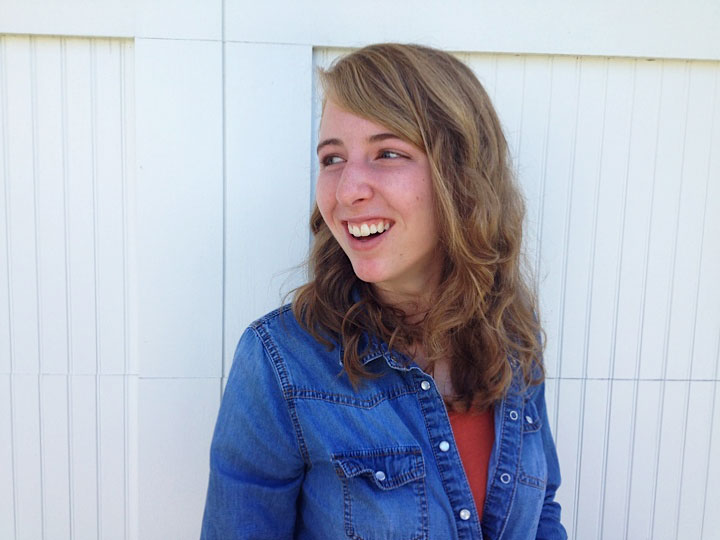
Kristen Powers ’16 was 3 years old when her mom began showing signs of Huntington’s Disease, an inherited illness that is eventually fatal to the carrier. Powers’ film, Twitch: The Documentary, came to completion last year and focuses on her decision to get genetic testing for Huntington’s Disease for herself and the long-term consequences that come with receiving a positive or negative result. She is a leader for the Huntington’s Outreach Project for Education, at Stanford (HOPES) and is deeply involved in promoting awareness for Huntington’s Disease.
The Stanford Daily (TSD): Since the first showing of Twitch, how have you seen the impact of the documentary grow? And describe different audience reactions that you have received so far.
Kristen Powers (KP): It’s been pretty overwhelming, all of the support I’ve received. All of the audiences have been pretty big on using film as an educational tool. Especially at community screenings, I’ve had widely engaged and excited audiences. Some of first events where people can open up to the rest of community have been provided through Twitch. At screenings, audiences have had very positive and very excited feedback, and the screenings were great for encouraging dialogue.
TSD: How has your experience with Twitch molded your life in the documentary industry, and do you have any other upcoming projects in mind?
KP: At the moment, I have no upcoming projects in mind. My experience with Twitch has reaffirmed the need for a type of film about genetic testing. People are interested in talking about genetics, and they realize how critical this conversation is to have, especially in discovering medical information involved in their own medical fate. What I always try to do is have a genetic counselor on site to provide local resources.
TSD: How would you like to see Twitch’s influence expand, and where are important places that you would like to take it to next?
KP: Exposing as many people as possible to this is the most important to me at this point. It’s hard to see which groups are most impacted. The idea is promoting awareness by reaching as many people as possible.
What I would like to aim for is to go to bigger cities like Miami, Boston and New York City. I’m trying to take all requests from the Huntington’s Disease (HD) community that I can. I’m trying to get to Australia and Asia. The HD community in Asia has a much more stigmatized population. It’s harder to gain support there where people are more nervous about talking about it.
TSD: What was it like hosting screenings of Twitch in places outside of the United States, like Santiago and Barcelona?
KP: The reaction was very similar to other places I’ve gone, not more so. To start with Barcelona, there were people from all over the world there. People with HD attended from throughout Europe. A lot of them didn’t have the same resources to get the safe, genetic testing process done as we do in the United States.
It is still very stigmatized in Santiago, but we were able to screen it at a high school. They mistook me as a celebrity with the way they reacted because they were shocked that someone my age could make a film like this. It was fun to talk to a South American audience about this disease they had never heard of; that made it a very interesting experience as well.
TSD: How else would you like to see Stanford students become involved in awareness for Huntington’s Disease and have you seen a concrete impact from your documentary on some of the Stanford community?
KP: With Stanford students, we have a group called Huntington’s Outreach Project for Education, at Stanford (HOPES) that I am the project leader for. We are trying to advertise more for the local community through events like the HDSA (Huntington’s Disease Society of America) Team Hope Walk on Oct. 25 at Golden Gate Park. In terms of Stanford students, it would be great to see Stanford students attend these kinds of events.
I’ve had a lot of people talk to me about considering what they would do in my situation – when I was deciding whether or not to get tested for Huntington’s – since we have companies down the street like 23andme. It’s good for Stanford students to question the risks that could predispose them to other biological conditions.
TSD: What have been some of your most fascinating, emotionally salient experiences with people after showing your film? Do you have any personal stories you would like to share?
KP: A lot of people got more invested in the film than I thought they would originally.
I went to Birmingham, Alabama, where the University of Alabama organized the biggest screening event yet – 400 people. People were clapping and cheering like crazy, and I heard waves of energy and noise from the 400 people behind me. That was probably the highlight of the tour for me. I don’t even think that there was one person with HD in the audience. The fact that they were so invested in this story even though they weren’t affected was really inspiring.
For more information about Kristen’s documentary, you can visit twitchdocumentary.com.
Contact Angelique Dakkak at angeldak ‘at’ stanford.edu.
